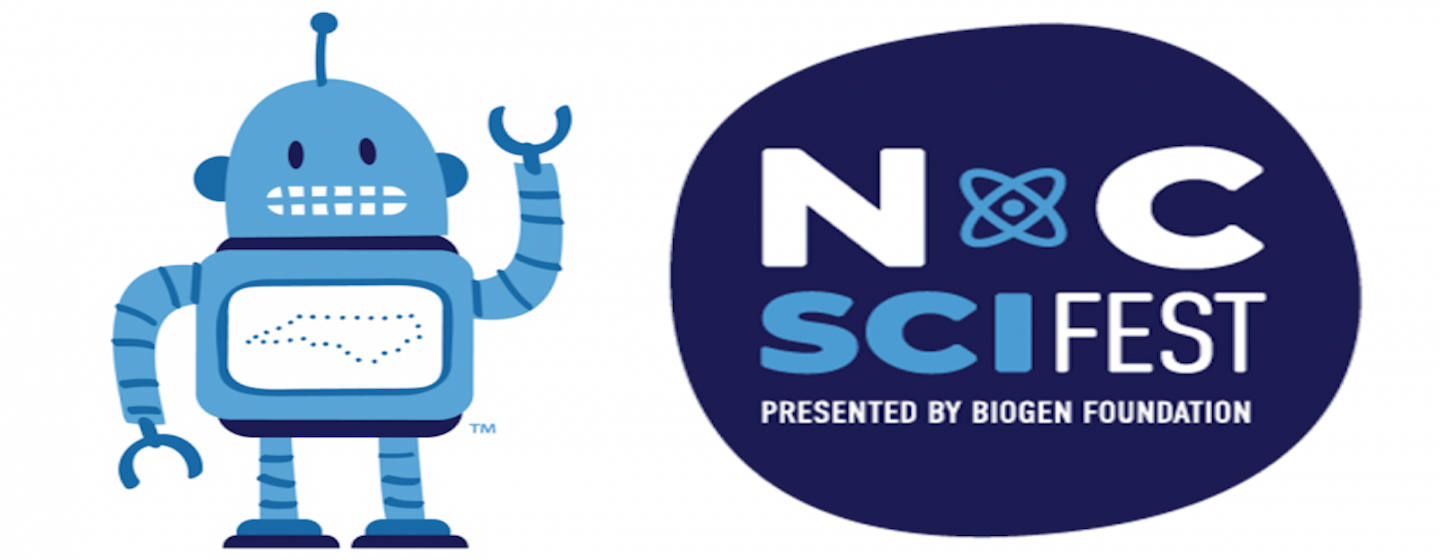How to Make a Science Festival Fun During a Pandemic


You could call it the festival that almost wasn’t.
“It was a crazy time, but we learned a lot and it forced us to focus on the mission, which is to celebrate science,” said Jonathan Frederick, director of the North Carolina Science Festival, looking back on the 2020 edition of the festival.
The hopes of the festival staff were soaring as high as an atmospheric research balloon when the calendar turned over to a new decade. The festival’s 10th anniversary was to be celebrated with a record number of events planned across the state.
Then the COVID-19 pandemic hit. The state and the nation shut down just weeks before the festival was scheduled to begin. Festival staff scrambled to pivot events to a digital format and highlight online STEM opportunities. The website was updated so everyone could engage in STEM activities from their homes. Those included hands-on activities, live virtual events, pre-recorded videos, and other educational resources.
“It was still cool, it was still fun, and it was still science, and it worked,” recalls Frederick. “And the best part was that the transformation into a virtual festival opened up science to new audiences because it allowed people to attend events they never could have travelled to.”
Just like the Science Festival staff, it didn’t take long for The Carolina Raptor Center to quickly discover the impact of virtual events. The Raptor Center closed to the public on May 18, 2020. The next day, staffers launched Avian Home Adventures on Facebook Live. By the time the Center reopened to the public in July, staff members had produced 70 episodes of the series and watched the audience numbers gradually increase.
“We learned a lifetime of technical knowledge and tricks in the past year, such as shooting in landscape and not portrait mode, making sure the audio was clear, avoiding background noise and the list goes on,” said Michele Miller Houck, the Center’s Chief Wonder Maker.
“But the audience was forgiving, the episode production kept improving, and we reached a lot of people that were never able to visit the center.”
The experience was so positive The Raptor Center is launching a weekly YouTube series called Avian Home Adventures on YouTube on April 5, 2021. The first episode is titled “What is a Raptor?”
“It was a chaotic way to learn new ways to teach people about raptors, but what a great lesson,” adds Miller Houck.
Frederick says many of the festival’s partners share the same feelings.
“Just as we’ve seen how important in-person learning is, in-person events remain the key to the festival,” adds Frederick. “But we’re going to study best practices from the past two years and help event sponsors create virtual components as well. We’re reimagining the festival for the future.”
Those could include recording events, so people could attend when they are able. It could also include supplemental hands-on activities, online resources, and interviews with scientists explaining their work.
The 2021 festival is a hybrid model, to accommodate communities that can safely host in-person events and those that would prefer to host a virtual event. To find all of the 2021 Science Festival activities, visit their website.